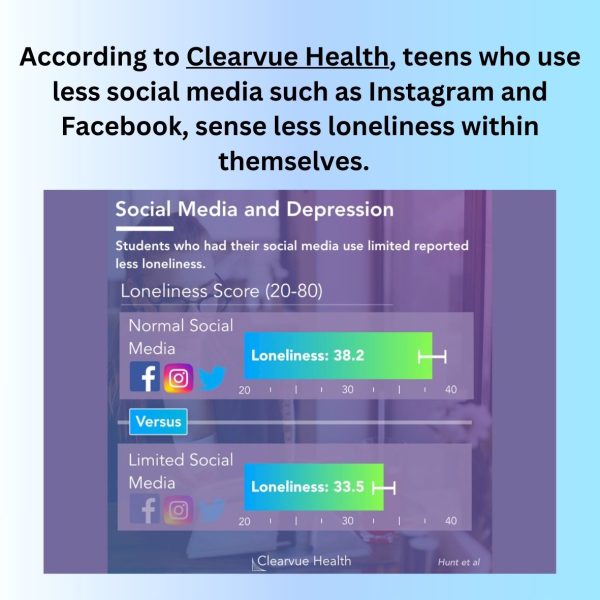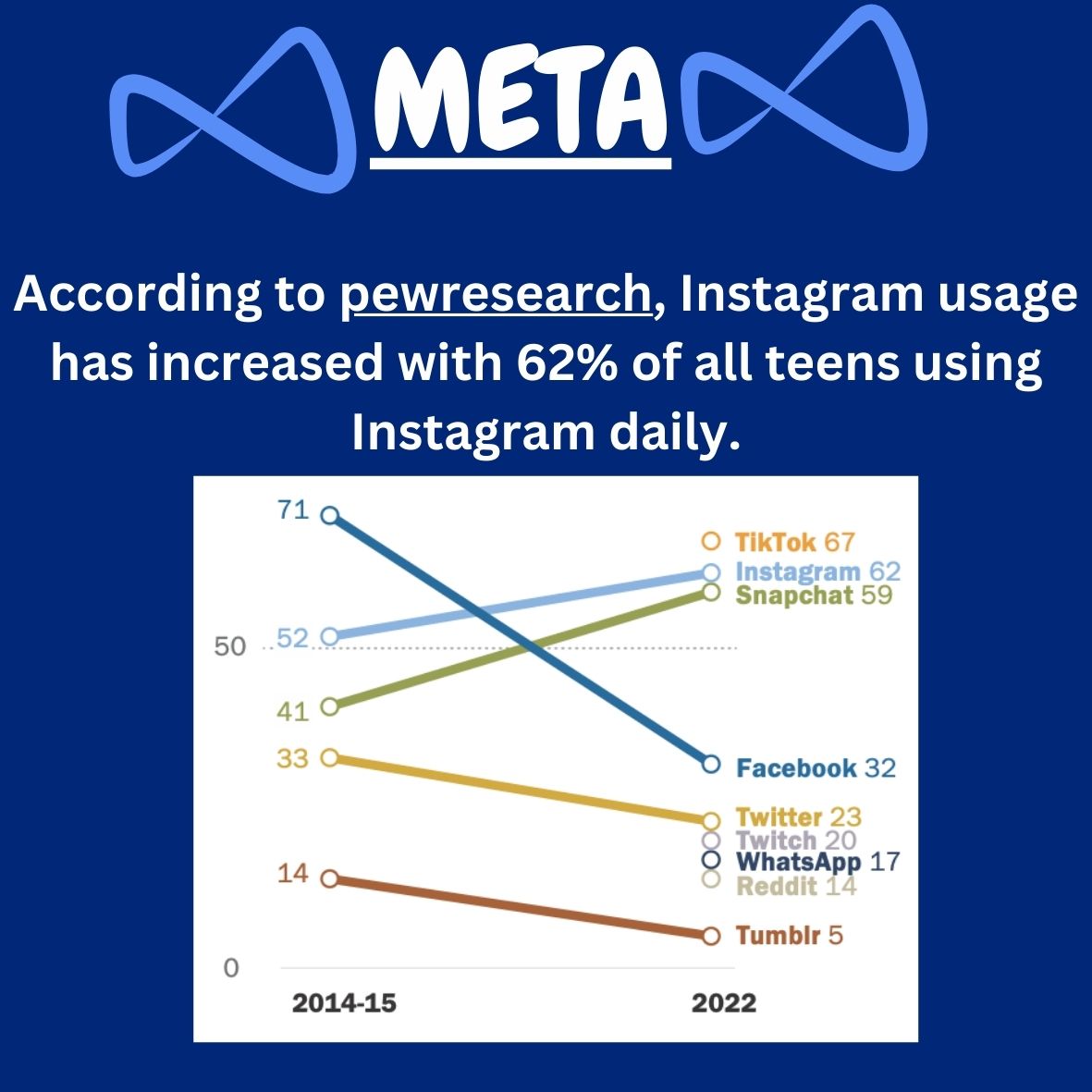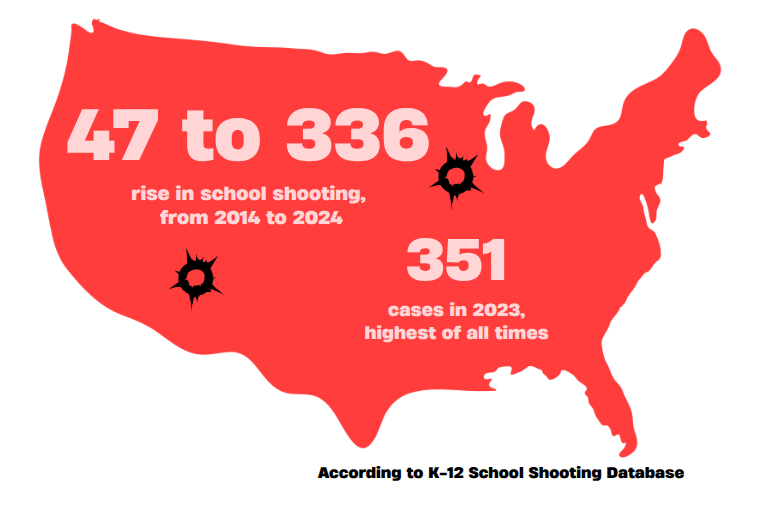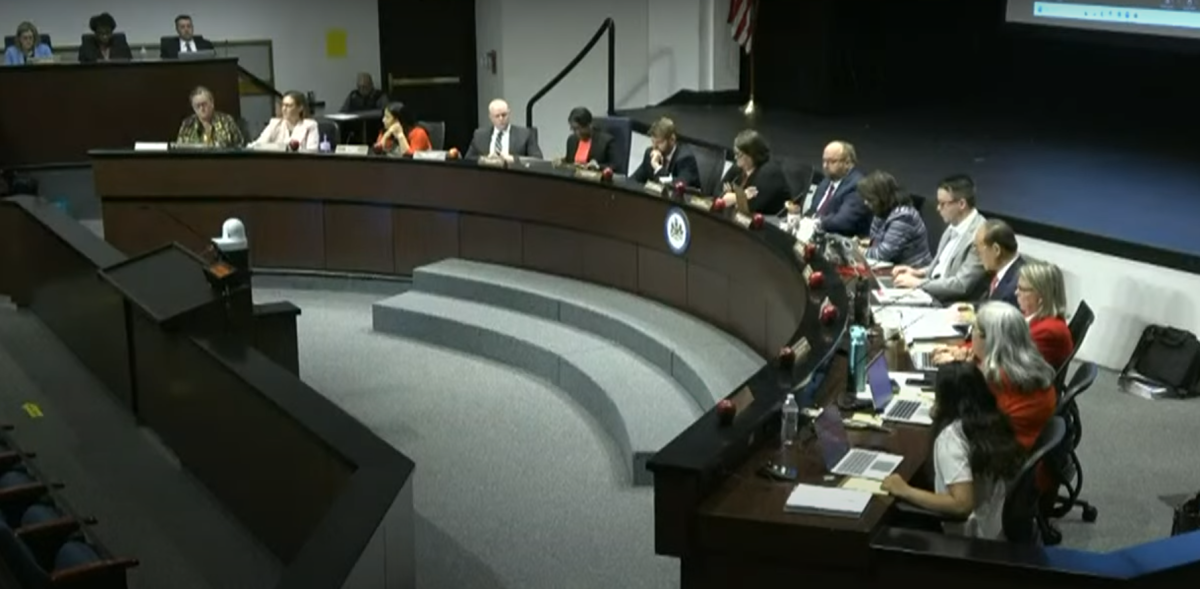Instagram is said to be one of Gen Z’s favorite social platforms. Many Global internet users from ages 16 to 24 prefer Instagram compared to other platforms such as TikTok. According to Statista, in April 2023 there were 6.3 billion visits. This makes Instagram one of the “most popular social networks worldwide.”
“My screen time is currently 11 hours daily, and I check it within each hour around seven or more times,” freshman Sowyn Jean-Baptiste said.
According to the New Jersey Office of The Attorney General, Meta, the company which owns Instagram and Facebook, have used practices that manipulate and exploit younger audiences. General Matthew J. Platkin and the Division of Consumer Affairs have deemed that the situation has damaged the potential of a generation of young people.
Instead of applying solutions to diminish the mental and psychological harms caused by the use of their platform, Meta continued to add extra features that aid young users’ addiction to their platforms, such as infinite scroll and constant alerts. For this reason, 42 states, including Virginia, filed a joint complaint in federal court against Meta’s business.
“Even though Meta is getting sued unless they get regulations for Instagram, it wouldn’t necessarily have a big impact,” sophomore Himagnya Elarpolu said.
Meta allegedly violates the federal Children’s Online Privacy Protection Act (COPPA), by repeatedly harming the physical and mental health of youth through their practices.

“My sleep schedule was affected because of my extreme phone use. It can be addicting for me because lots of short-form content can hook me into Instagram. Social media has probably impacted my mental health more than I realize, ” Baptiste said.
According to The Michigan Department of the Attorney General, the company was aware of these features being harmful to people’s physical and mental health with effects such as sleep deprivation, but this information was not revealed to try to minimize the distress.
“When I constantly spend my time on social media, I get a lot less done and tend to procrastinate a lot more,” sophomore Himaganya Elaprolu said.
Elaprolu’s current screen time averages three hours and forty-three minutes a day. Elaprolu finds herself continuously scrolling on Instagram due to her constantly being intrigued by what everyone else is up to and endless reels. According to the American Academy of Child Adolescent Psychiatry, on average, teens spend up to nine hours on their phones, although experts say two hours or less of screen time is best.
“I try not to spend as much time on social media, so it hasn’t affected my mental health, but I do get less done because I procrastinate more when I’m on my phone,” Elaprolu said. “I check social media a couple of times every hour, and I end up spending more than 15 minutes on my phone.”
Under the authority of Colorado Attorney General Phil Weiser, a complaint for creating addictive apps was filed in the U.S. District Court for the Northern District of California against Meta. According to the Attorney General of Connecticut, their platforms push users into “rabbit holes” to get more usage.
“Meta’s apps disconnect people from being in present situations,” freshman Claire Yi said. “It can make them less social when in big groups of people. If Meta used parental consent, there would be fewer young users which would help them stay more active rather than being on social media.”
Yi thinks Meta could make their apps less addicting by changing their features and possibly giving a notification if the app notices too much usage from any certain user. Although it’s possible for users to check their screen time in the activity log, it is not as apparent on their apps.
“The content hooks people onto their apps because everything’s personalized to you depending on what you normally view on Instagram,” Elaprolu said. “The algorithm for reels always finds things that you’re interested in.”









